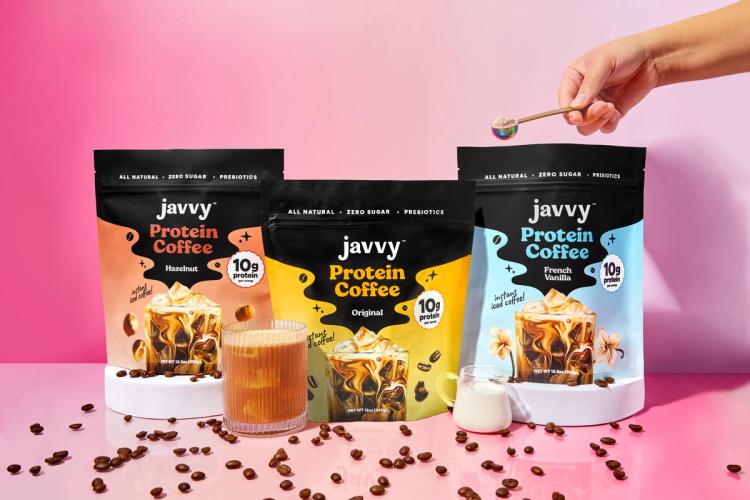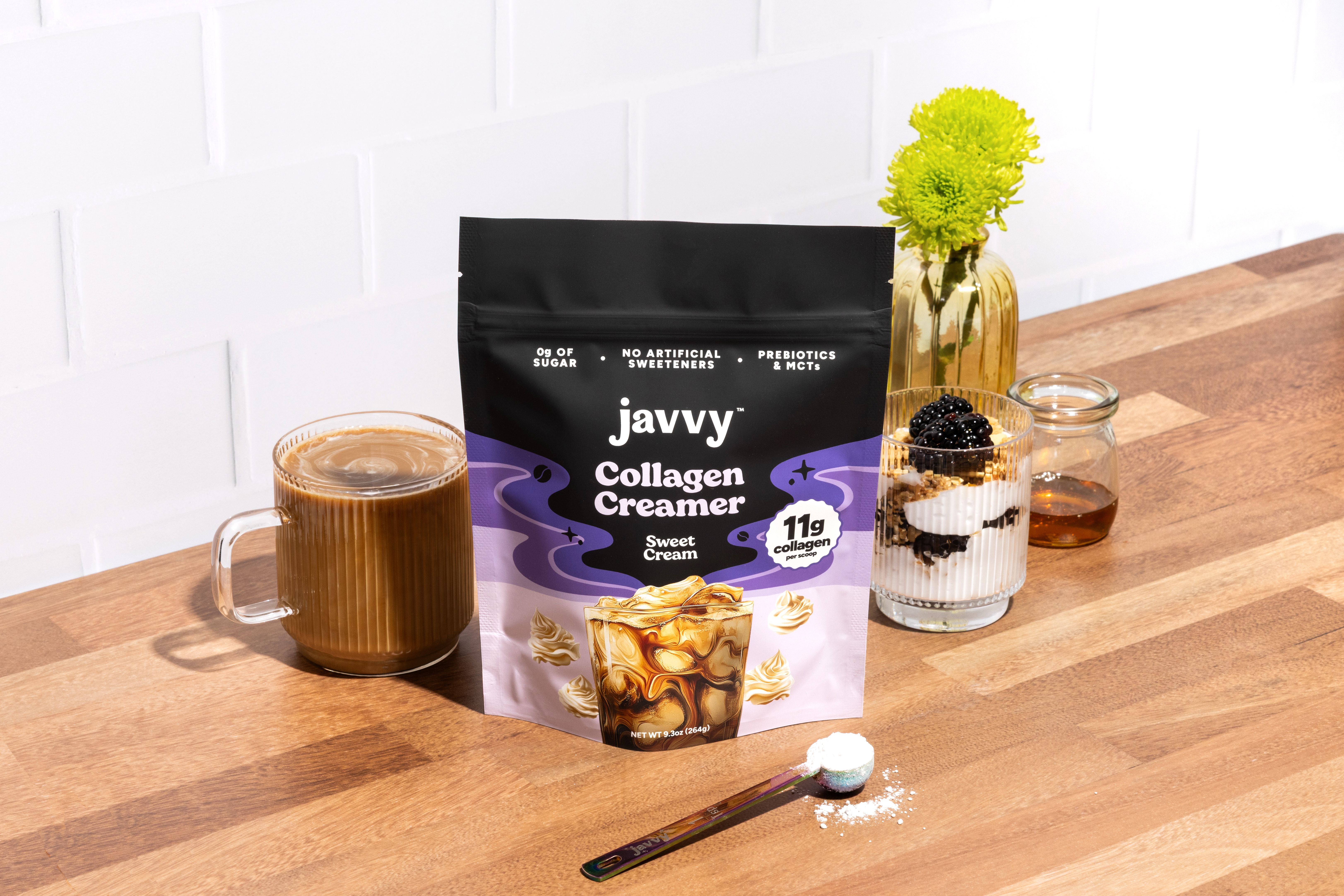
Which Protein Works Best in Coffee? Whey, Collagen, or Plant-Based?
Key Takeaways:
Protein Options for Coffee

Protein powders for coffee are specially formulated nutrition blends that enhance the drink’s protein content, support wellness goals, and blend seamlessly into hot or iced coffee without compromising the flavor or texture. These powders all do the same job at a high level, but each one behaves differently in coffee and supports different goals.
The three main options you’ll see are:
Each type has its own amino acid profile, which is why they perform differently in your body and in your cup.
Whey Protein in Coffee

Whey protein is derived from cow’s milk and is a complete protein containing all nine essential amino acids needed for muscle growth and recovery. It’s rich in BCAAs — especially leucine — which is key for muscle repair and strength. Studies show that whey increases blood leucine levels within 15-60 minutes, outperforming collagen and pea protein in terms of muscle-building.
Whey also helps increase satiety, which can support weight management goals.
Best For
Whey is best for:
It’s not ideal for vegans or anyone avoiding dairy.
Collagen Protein in Coffee

Collagen protein is extracted from bovine hides and has a unique amino acid profile that supports skin elasticity, joint comfort, and gut health. It’s not designed for muscle-building, but it excels in overall wellness.
Collagen is typically easier to digest than whey and mixes beautifully. Its amino acids also stay stable through processing, which helps with absorption.
Collagen is not a complete protein, so it’s not the best choice if your primary goal is muscle growth.
Best For
Collagen is perfect for:
It’s not suitable for vegans or strict vegetarians.
Plant-Based Protein in Coffee

Plant-based proteins are made from sources like peas, rice, or hemp, making them ideal for vegans and dairy-free lifestyles. Some blends (especially fortified ones) offer solid BCAA profiles and can support muscle recovery similarly to whey.
Texture and taste vary more here than with whey or collagen, and formula quality makes a big difference.
Best For
Plant-based protein works well for:
If your goal is muscle-building, check for blends with complete amino acid profiles.
The Javvy Difference

Javvy makes functional protein coffees built for real life — smooth, delicious, and powered by clean ingredients and sugar-free sweeteners. Made with premium whey, no added sugar, and prebiotics, this is protein coffee you can rely on.
It’s consistent from scoop to scoop, budget-friendly per serving, and designed to travel. Whether you’re chasing satiety, recovery, or just a better iced latte at home, Javvy gives you café flavor and functional nutrition in one simple step.
The Bottom Line
From whey to collagen and plant-based options like pea protein, there are a variety of protein powders to choose from. However, they don’t all work the same in your body (or in your coffee). That’s why, at Javvy, we use premium whey protein in our protein coffee. For a cup you can count on, we have you covered.
FAQs
How much protein powder should I add to my coffee?
Most people use 25-30g of protein per cup of coffee, which is enough to support daily protein needs, muscle recovery, and steady energy.
Which protein is best for muscle recovery when added to coffee?
Whey protein is the strongest option for muscle recovery because it’s a complete protein packed with BCAAs, including leucine, which drives muscle protein synthesis.
Are there any dietary restrictions to consider when choosing protein for coffee?
Yes. Whey is dairy-based, collagen is animal-derived, and only plant-based proteins work for vegans. Anyone with lactose or dairy sensitivities should avoid whey.
Does protein coffee support weight management and skin health?
It can. Protein coffee helps with weight management by promoting fullness, and collagen-infused blends support skin health thanks to their unique amino acid profile.
Sources:
What is Whey Protein? Is Whey Dairy? | U.S. Dairy
Collagen Extraction from Animal Skin | PMC
Plant-based Protein Infographic | American Heart Association








